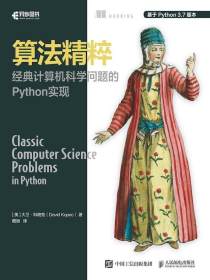内容简介
In the readition of the bestselling Chaos and A Brief History of Time, here is a science book with mainstream appeal. Proponents of artificial intelligence maintain that eventually a computer will be able to do everything a human mind can do, but Oxford University Professor of Mathematics Roger Penrose explains his view that there are facets of human thinking that can never be emulated by a machine. Drawings throughout.
Some love it, some hate it, but The Emperor's New Mind, physicist Roger Penrose's 1989 treatise attacking the foundations of strong artificial intelligence, is crucial for anyone interested in the history of thinking about AI and consciousness. Part survey of modern physics, part exploration of the philosophy of mind, the book is not for casual readers--though it's not overly technical, it rarely pauses to let the reader catch a breath. The overview of relativity and quantum theory, written by a master, is priceless and uncontroversial. The exploration of consciousness and AI, though, is generally considered as resting on shakier ground.
Penrose claims that there is an intimate, perhaps unknowable relation between quantum effects and our thinking, and ultimately derives his anti-AI stance from his proposition that some, if not all, of our thinking is non-algorithmic. Of course, these days we believe that there are other avenues to AI than traditional algorithmic programming; while he has been accused of setting up straw robots to knock down, this accusation is unfair. Little was then known about the power of neural networks and behavior-based robotics to simulate (and, some would say, produce) intelligent problem-solving behavior. Whether these tools will lead to strong AI is ultimately a question of belief, not proof, and The Emperor's New Mind offers powerful arguments useful to believer and nonbeliever alike. --Rob Lightner
作者简介
罗杰·彭罗斯
英国数学物理学家,从1973年起担任牛津大学的罗斯·波勒数学教授,是全世界公认的最博学和最有创见的科学家、思想家、哲学家。
译者简介
许明贤,1947年出生于上海,1968年清华大学无线电系毕业,之后任教于中国科技大学。目前在美攻读博士学位。
吴忠超,1946年出生于福州,1968年毕业于中国科技大学无线电系,并任教于该校。1984年在霍金教授指导下,得到剑桥大学博士学位。
The Emperor's New Mind是1999年由OxfordPaperbacks出版,作者RogerPenrose。
温馨提示:
得书感谢您对《The Emperor's New Mind》关注和支持,如本书内容有不良信息或侵权等情形的,请联系本网站。

















